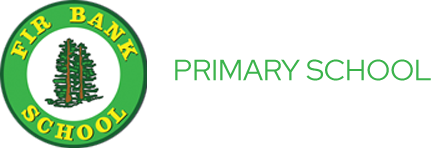History
Intent
At Fir Bank Primary School, we are becoming HISTORIANS! We want our children to love history. We want them to be creative thinkers who develop complex knowledge of local and national history of the wider world. We want children to develop the confidence to think critically, ask questions, and be able to explain and analyse historical evidence.
Our aim is that, through the teaching of History, we stimulate all children’s interest and understanding about the life of people who lived in the past. We teach children a sense of chronology, in order to develop a sense of identity and a cultural understanding based on their historical heritage. We aim to make all children aware of the actions of important people in history and enable children to know about significant events in British and local history, and recognising how things have changed over time. History will support children to appreciate the complexity of people’s lives, the diversity of societies and the relationships between different groups. Studying History allows children to appreciate the many reasons why people may behave in the way they do, supporting children to develop empathy for others while providing an opportunity to learn from mankind’s past mistake. Furthermore, we hope to develop children’s understanding of how historians study the past and construct accounts and the skills to carry out their own historical enquiries. In order to prepare our children for their future learning in History, we introduce them to key substantive concepts including power, invasion, settlement and migration, empire, civilisation, religion, trade, achievements of humankind, society and culture.
Implementation
At Fir Bank, History is taught in every year group, in half termly topics of which year 1-5 have 3 per year. Topics are blocked to allow children to focus on developing their knowledge and skills, studying each topic in depth. We have developed a progression of skills with each year group, which enables pupils to build on and develop their skills each year. In KS1, History begins by looking at the children’s own personal history and introduces them to the idea of chronology and timelines. Also, the children will look at significant events and people who have shaped society, locally and nationally. In KS2, we start with a series of Ancient History studies before looking at a range of local and global historical periods. All lessons start with retrieval practise to allow the children to draw upon their prior knowledge and learning from previous year groups and topics. At the start of each topic children will review previous learning and will have the opportunity to share what they already know about a current topic. Children are given opportunities, where possible, to study artefacts leading to enquiry, investigation, analysis, interpretation, evaluation and presentation. Through using a range of assessment tools, adaptations are made by teachers, to ensure that each pupil can access the History curriculum. At the end of each topic, children complete an assessment task which demonstrates their learning from each topic.
Impact
The impact of this History curriculum can be constantly monitored through both formative and summative assessment opportunities.
The expected impact of following the History curriculum at Fir Bank is that all children will:
- Know and understand the history of Britain, how people’s lives have shaped this nation and how Britain has influenced and been influenced by the wider world.
- Develop an understanding of the history of the wider world, including ancient civilisations, empires, non-European societies and the achievements of mankind.
- Develop a historically-grounded understanding of substantive concepts - power, invasion, settlement and migration, civilisation, religion, trade, achievements of mankind and society.
- Form historical arguments based on cause and effect, consequence, continuity and change, similarity and differences.
- Have an appreciation for significant individuals, inventions and events that impact our world both in history and from the present day.
- Understand how historians learn about the past and construct accounts.
- Ask historically-valid questions through an enquiry-based approach to learning to create structured accounts.
- Explain how and why interpretations of the past have been constructed using evidence.
- Make connections between historical concepts and timescales.
- Meet the relevant Early Learning Goals at the end of EYFS (Reception) and the end of key stage expectations outlined in the National curriculum for History at the end of Key stage 1 and 2.
Quality assurance with be conducted through-
- Learning walks and professional dialogue with teachers.
- Pupil voice – interviews with children about their learning.
- Moderation staff meetings where pupil’s books/ class floor books are scrutinised and there is an opportunity for dialogue between teachers and to discuss the learning and teaching in their class.
